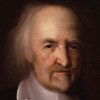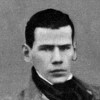“ When we do not at all understand the cause of an action, whether a crime, a good action, or even one that is simply nonmoral, we ascribe a greater amount of freedom to it. ”
Leo Tolstoy, War and Peace (1869). copy citation
| Author | Leo Tolstoy |
|---|---|
| Source | War and Peace |
| Topic | freedom action |
| Date | 1869 |
| Language | English |
| Reference | |
| Note | Translated by Louise and Aylmer Maude |
| Weblink | http://www.gutenberg.org/files/2600/2600-h/2600-h.htm |
Context
“The better we are acquainted with the physiological, psychological, and historical laws deduced by observation and by which man is controlled, and the more correctly we perceive the physiological, psychological, and historical causes of the action, and the simpler the action we are observing and the less complex the character and mind of the man in question, the more subject to inevitability and the less free do our actions and those of others appear.
When we do not at all understand the cause of an action, whether a crime, a good action, or even one that is simply nonmoral, we ascribe a greater amount of freedom to it. In the case of a crime we most urgently demand the punishment for such an act; in the case of a virtuous act we rate its merit most highly. In an indifferent case we recognize in it more individuality, originality, and independence.”
source


